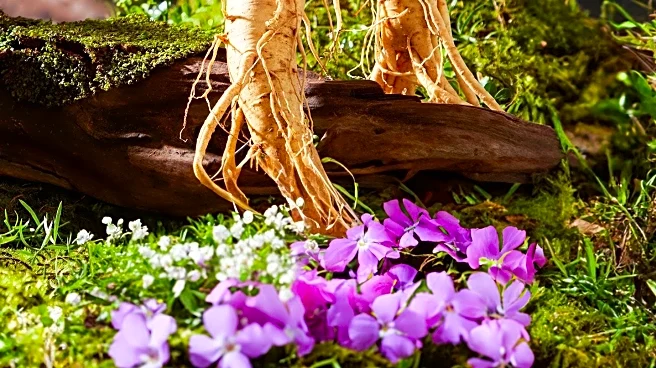What is the story about?
What's Happening?
Queer herbalists are actively reclaiming ancestral plant wisdom to address healthcare challenges faced by marginalized communities. Berenice Dimas, an herbalist from San Diego, learned herbal medicine from her mother, who creatively used available resources like soda instead of water due to economic constraints. Herbalists like Dimas emphasize the importance of relationships with plants, rejecting the commodification of herbalism by settler culture. They focus on collective care and reciprocal relationships with the land, offering courses through Hood Herbalism, an online school grounded in BIPOC, queer, and working-class traditions.
Why It's Important?
The work of queer herbalists is crucial in the context of healthcare rollbacks and environmental challenges. By reclaiming plant knowledge, they provide alternative healing methods that are accessible to communities often excluded from mainstream healthcare systems. This approach not only preserves cultural heritage but also offers resilience against systemic inequalities. As healthcare costs rise and access becomes limited, the knowledge and practices of herbalists can play a vital role in community health and sustainability.
Beyond the Headlines
The movement to decolonize medicine by reclaiming plant knowledge is a form of resistance against extractive practices that separate people from their land and heritage. Herbalists emphasize the importance of mutual aid and community care, particularly for queer individuals who have historically been marginalized by conventional healthcare systems. This approach fosters a deeper connection to the environment and promotes sustainable living practices, offering a model for resilience in the face of societal and ecological challenges.















